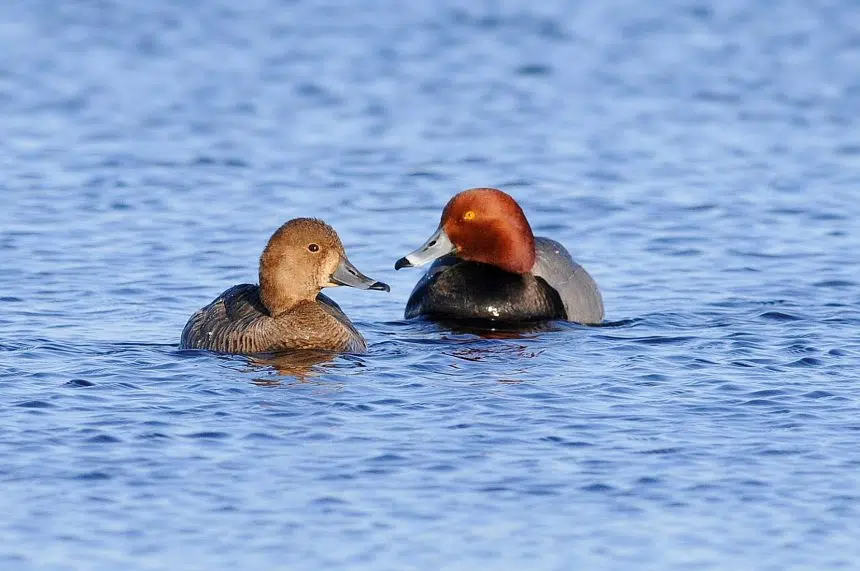When the weather gets this hot and dry many people flock to the lake, but the search for a great waterfront spot is getting tougher for ducks and other water birds this year.
While you can still find plenty of ducks at Wascana and larger lakes, a lot of temporary sloughs that provide habitat are looking very dry this spring.
Michael Champion is with government relations for Ducks Unlimited Saskatchewan and says the number of wetlands is declining across the province this spring.
“This would be considered part of a natural cycle where wetlands – they dry out in the drier conditions that we’re seeing today but those wetlands will come back when we do get rain,” Champion said.
If there is a sustained drought through the summer, Champion said the wetlands will depend on heavier snowfall next winter.
Champion said the search for good habitat might have some waterfowl bypassing the southern prairies on their migration in favour of the boreal forest region up north where wetland conditions are more stable.
“There’s a large number of birds that still do settle on their traditional summer grounds here in the prairie region and there’ll just be greater competition for water as the ducks raise their ducklings and take them to water,” Champion explained, noting that many birds nest away from the actual shoreline.
Looking to the hunting season in the fall, Champion noted that ducks will still be stopping along their normal migratory path and looking for food. In the event of another dry summer, they just might flock more to the larger lakes.
He said prairie wetlands are actually well adapted for cycles of drought like this one and they will come back in the summer or fall.
He said the bigger concern right now is that the province continues to lose more than 10 thousand acres of wetlands to illegal drainage works each year. Those lost wetlands could make up for the lost habitat in wetlands that dry out naturally.
“We need to figure out how to couple a sustainable agriculture policy with a sustainable wetland policy,” Champion commented.
He said the water security agency estimates 85 per cent of the drainage projects in the province are illegal.











